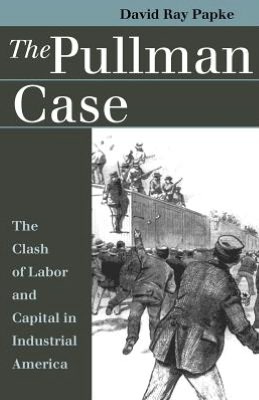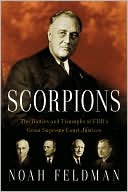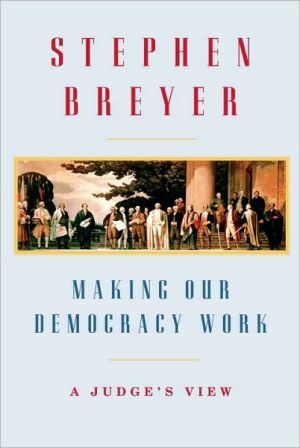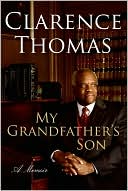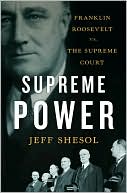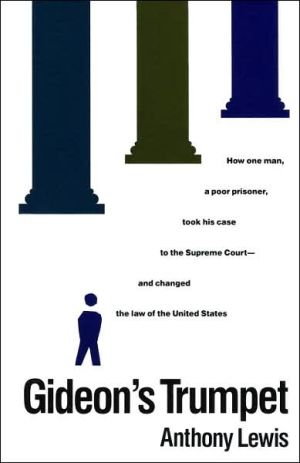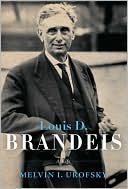The Pullman Case: The Clash of Labor and Capital in Industrial American
When the American Railway Union went on strike against the Pullman Palace Car Company in 1894, it set into motion a chain of events whose repercussions are still felt today. The strike pitted America's largest industrial union against twenty-four railroads, paralyzed rail traffic in half the country, and in the end was broken up by federal troops and suppressed by the courts, with union leader Eugene Debs incarcerated. But behind the Pullman case lay a conflict of ideologies at a watershed...
Search in google:
When the American Railway Union went on strike against the Pullman Palace Car Company in 1894, it set into motion a chain of events whose repercussions are still felt today. The strike pitted America's largest industrial union against twenty-four railroads, paralyzed rail traffic in half the country, and in the end was broken up by federal troops and suppressed by the courts, with union leader Eugene Debs incarcerated. But behind the Pullman case lay a conflict of ideologies at a watershed time in our nation's history. David Ray Papke reexamines the events and personalities surrounding the 1894 strike, related proceedings in the Chicago trial courts, and the 1895 Supreme Court decision, In re Debs, which set important standards for labor injunctions. He shows how the Court, by upholding Debs's contempt citation, dealt fatal blows to broad-based unionism in the nation's most important industry and to any hope for a more evenhanded form of judicial involvement in labor disputes—thus setting the stage for labor law in decades to come. The Pullman case was a defining moment in the often violent confrontation between capital and labor. It matched wealthy industrialist George Pullman against Debs and gave a stage to Debs's fledgling attorney Clarence Darrow. Throughout the trial, capital and labor tried to convince the public of the justice of their cause: Debs decrying the company's treatment of workers and Pullman raising fears of radical unionists. Papke provides an analytically concise and highly readable account of these proceedings, offering insight into the strengths and weaknesses of the law at the peak of industrial capitalism, showcasing Debs's passionate commitment to workers' rights, and providing a window on America during a period of rapid industrialization and social transformation. Papke shows that the law was far from neutral in defending corporate interests and suggests what the Pullman case, by raising questions about both the legitimacy of giant corporations and the revolutionary style of industrial unions, can teach us about law and legal institutions in our own time. His book captures the passions of industrial America and tells an important story at the intersection of legal and cultural history. This book is part of the Landmark Law Cases and American Society series. Library Journal The case in question is the strike against the Pullman Palace Car Company in 1894 by the American Railway Union, led by Eugene V. Debs. The broader issues here involve industrialization; the early labor movement; the emergence of capital as an economic, cultural, and political force; the role of the law and especially the Supreme Court in addressing new social and political realities; ideological conflict within American political thought and practice; and the development of labor law and labor relations during this period and beyond. Papke (law, Indiana Univ.) deftly handles all these issues, focusing on the personalities, parties, and principles at play in this critical confrontation between capital and labor. His book exemplifies the scope and purpose of this series, clearly and convincingly addressing the pertinent aspects of the controversy and thereby placing it within the broader stream of American political and cultural history. Highly recommended, especially for undergraduate courses and public and academic libraries.--Stephen Kent Shaw, Northwest Nazarene Coll., Nampa, ID
Editors' PrefacePreface1Pullman, Debs, and Chicago in the 1890s12The Strike and Boycott203The Strike on Trial384In the Eyes of the United States Supreme Court595Ramifications and Conclusions80Chronology101Bibliographical Essay103Index109
\ Library JournalThe case in question is the strike against the Pullman Palace Car Company in 1894 by the American Railway Union, led by Eugene V. Debs. The broader issues here involve industrialization; the early labor movement; the emergence of capital as an economic, cultural, and political force; the role of the law and especially the Supreme Court in addressing new social and political realities; ideological conflict within American political thought and practice; and the development of labor law and labor relations during this period and beyond. Papke (law, Indiana Univ.) deftly handles all these issues, focusing on the personalities, parties, and principles at play in this critical confrontation between capital and labor. His book exemplifies the scope and purpose of this series, clearly and convincingly addressing the pertinent aspects of the controversy and thereby placing it within the broader stream of American political and cultural history. Highly recommended, especially for undergraduate courses and public and academic libraries.--Stephen Kent Shaw, Northwest Nazarene Coll., Nampa, ID\ \ \ \ \ BooknewsThe American Railway Union strike against the Pullman Palace Car Company in 1894 pitted America's largest industrial union against 24 railroads, and was broken up by federal troops and suppressed in the courts. Papke (law, Indiana U. School of Law-Indianapolis) re-examines events and personalities surrounding the strike, related proceedings in the Chicago trial courts, and the 1895 Supreme Court decision, , which set important standards for labor injunctions. Annotation c. Book News, Inc., Portland, OR (booknew.com)\ \ \ Richard A. Brisbin, Jr.As James Atleson (1989) has shown, the injunction remains a powerful tool for the combined managerial and governmental containment or suppression of job actions by workers. The paternalism in the law of employment and labor organizations that Papke exposes in the Pullman case thus still survives today. It is a political lesson that students need to learn. \ — The Law and Politics Book Review\ \
